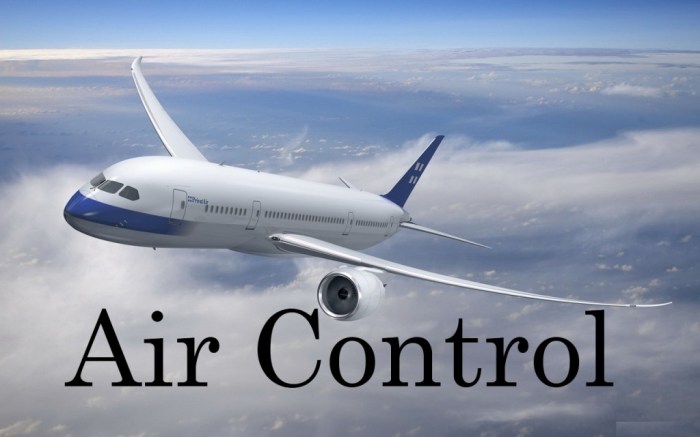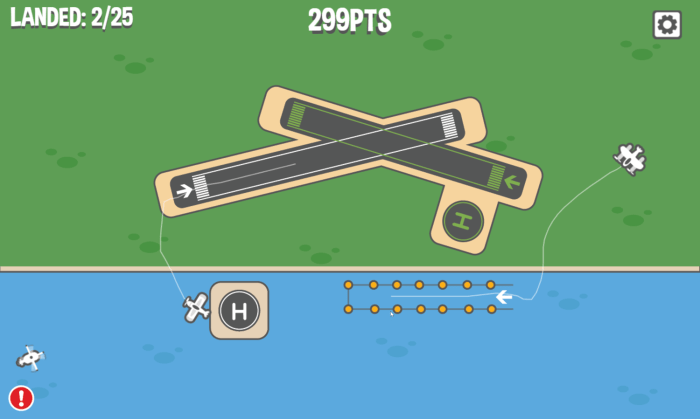Air control video games, a captivating genre of virtual aviation, invite players to take on the mantle of air traffic controllers, orchestrating the safe and efficient movement of aircraft within the bustling skies. These games demand a keen eye, nimble reflexes, and a deep understanding of airspace management, making them a thrilling challenge for enthusiasts of simulation and strategy.
From the iconic classics of the past to the cutting-edge experiences of today, air control video games have evolved significantly, offering a diverse range of experiences that cater to both casual and hardcore gamers alike. Whether navigating the congested airspace of major airports or guiding aircraft through treacherous weather conditions, these games provide an immersive and engaging experience that tests the limits of one’s strategic thinking and multitasking abilities.
Air Control Video Games

Air control video games are a subgenre of simulation games that challenge players to manage air traffic and ensure the safe and efficient movement of aircraft. These games typically feature a top-down perspective, allowing players to oversee a large airspace and control multiple aircraft simultaneously.Popular
air control video games include classics such as “Air Traffic Controller” and “Tower!3D,” as well as more recent titles like “Flight Control” and “AirSpace.” Each game offers its own unique features and challenges, but all share the core gameplay mechanic of managing air traffic and preventing collisions.
Gameplay Mechanics
Air control video games present players with a variety of challenges and obstacles, including:
Managing air traffic
Players must coordinate the movement of multiple aircraft, ensuring that they maintain safe distances from each other and avoid collisions.
Avoiding collisions
Collisions between aircraft can have disastrous consequences, so players must be vigilant in monitoring the airspace and issuing timely instructions to pilots.
Optimizing flight paths
Players must consider factors such as weather conditions, airspace restrictions, and aircraft performance to determine the most efficient flight paths for each aircraft.
Using radar systems and other tools
Air control video games typically provide players with a variety of tools to assist them in managing air traffic, including radar systems, flight plans, and communication systems.
Level Design
The design of air control video game levels plays a crucial role in determining the difficulty and replayability of the game. Levels typically feature a variety of obstacles and challenges, such as:
Obstacles
Obstacles such as mountains, buildings, and other aircraft can create hazards for aircraft, forcing players to carefully plan their flight paths.
Airspace restrictions
Airspace restrictions, such as no-fly zones and altitude limits, can further complicate the task of managing air traffic.
Weather conditions
Weather conditions such as fog, rain, and snow can reduce visibility and make it more difficult for players to control aircraft.
Player Progression, Air control video game
Many air control video games offer players the opportunity to progress through levels and unlock new features. Progression is typically based on the player’s performance, with experience points and levels being awarded for completing levels and achieving objectives.Unlocks can include new aircraft, new levels, and new tools to assist players in managing air traffic.
Progression can add an element of challenge and replayability to the game, as players strive to unlock new content and improve their skills.
Clarifying Questions
What are the key challenges in air control video games?
Air control video games present players with a variety of challenges, including managing air traffic, avoiding collisions, optimizing flight paths, and dealing with unexpected events such as weather disturbances or equipment failures.
What are the different types of aircraft featured in air control video games?
Air control video games typically feature a wide range of aircraft, including commercial airliners, private jets, military aircraft, and helicopters. Each type of aircraft has its own unique characteristics and flight patterns, which players must take into account when managing air traffic.
How do players progress in air control video games?
Players in air control video games typically progress by completing levels or missions. As they progress, they may unlock new airports, aircraft, and features, and face increasingly challenging scenarios that test their skills and strategic thinking.


